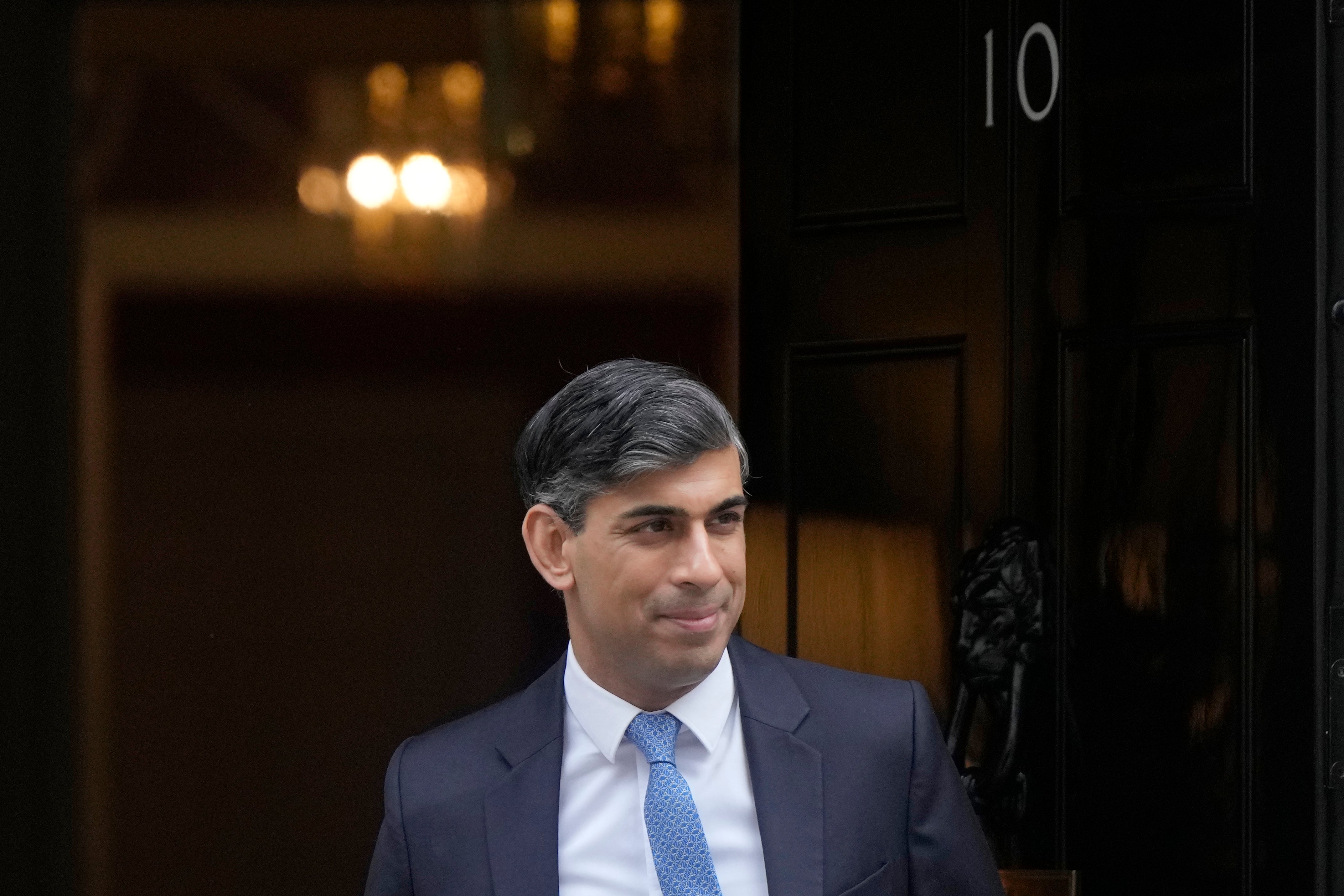Sunak says the UK is descending into mob rule. Critics accuse him of undermining protest rights
Prime Minister Rishi Sunak says Britain is descending into “mob rule” because of the pressures created by protests against the Israel-Hamas war

Prime Minister Rishi Sunak said Britain is descending into “mob rule” because of the pressures created by protests against the Israel-Hamas war — words criticized as alarmist by a human rights group.
Sunak told a meeting of police leaders on Wednesday that there was a ”pattern of increasingly violent and intimidatory behavior” that’s intended to “shout down free debate and stop elected representatives doing their job.”
“There is a growing consensus that mob rule is replacing democratic rule,” he said, according to a transcript released by the prime minister’s office. “And we’ve got to collectively, all of us, change that urgently.”
Tom Southerden of Amnesty International said Thursday that talk of mob rule “wildly exaggerates the issue and risks delegitimizing the rights of peaceful protest.”
Mass protests have drawn hundreds of thousands of people to central London almost weekly to call for a cease-fire in a conflict that has killed close to 30,000 Palestinians, according to the Gaza Health Ministry in the Hamas-run territory. Israel says Hamas killed 1,200 Israelis, mostly civilians, and abducted roughly 250, in the Oct. 7 attack.
The protests have been overwhelmingly peaceful, though there have been dozens of arrests over signs and chants allegedly supporting Hamas, a banned organization in Britain. Jewish organizations and many lawmakers say the mass marches have created an intimidating atmosphere for Jewish Londoners — though members of the Jewish community have been among those on pro-cease-fire marches.
Divisions over the conflict in Gaza have convulsed British politics, with some lawmakers saying they fear for their safety after receiving threats over their positions on the war. Reports of both antisemitic and anti-Muslim abuse in Britain have soared since Hamas’ Oct. 7 attack on Israel, which triggered Israel’s invasion of Gaza.
A debate last week in the House of Commons on whether to call for a cease-fire descended into chaos amid allegations the speaker of the house had bent parliamentary rules in response to pressure from pro-Palestinian activists.
During the debate, protesters projected “ From the river to the sea, Palestine will be free” — a slogan some see as calling for the destruction of Israel — onto Parliament’s Big Ben clocktower.
On Saturday, Sunak suspended Conservative lawmaker Lee Anderson from the party for saying London Mayor Sadiq Khan, who is Muslim, was controlled by Islamists and had allowed them to take charge of the city.
Pro-Palestinian demonstrators protested at the house of a Conservative lawmaker earlier this month, while environmental activists have targeted Sunak’s family home in northern England.
The prime minister met police chiefs after announcing a 31-million-pound ($40-million) fund to step up security for lawmakers after politicians reported threats and intimidation connected to the war.
At Wednesday’s meeting, the government told police chiefs that protests at politicians’ homes “should generally be considered to be intimidatory.”
Sunak told officers to take a “robust approach … to protect our democratic processes from intimidation, disruption, from subversion.”
The debate comes after several years of increasingly stringent restrictions on peaceful protest by the Conservative government. It has passed new laws to clamp down on broadly defined “public nuisance,” punishable by up to 10 years in prison, and giving police more powers to restrict protests judged to be disruptive. Hundreds of environmental activists have been arrested and sometimes jailed for blocking roads and other nonviolent acts.
“Freedom of expression and assembly are absolutely fundamental rights in any free and fair society,” said Southerden, law and human rights director at Amnesty U.K.
“The U.K. has undergone a major crackdown on protest rights in recent years, with peaceful protest tactics being criminalized and the police being given sweeping powers to prevent protests taking place,” he said.
Subscribe to Independent Premium to bookmark this article
Want to bookmark your favourite articles and stories to read or reference later? Start your Independent Premium subscription today.
